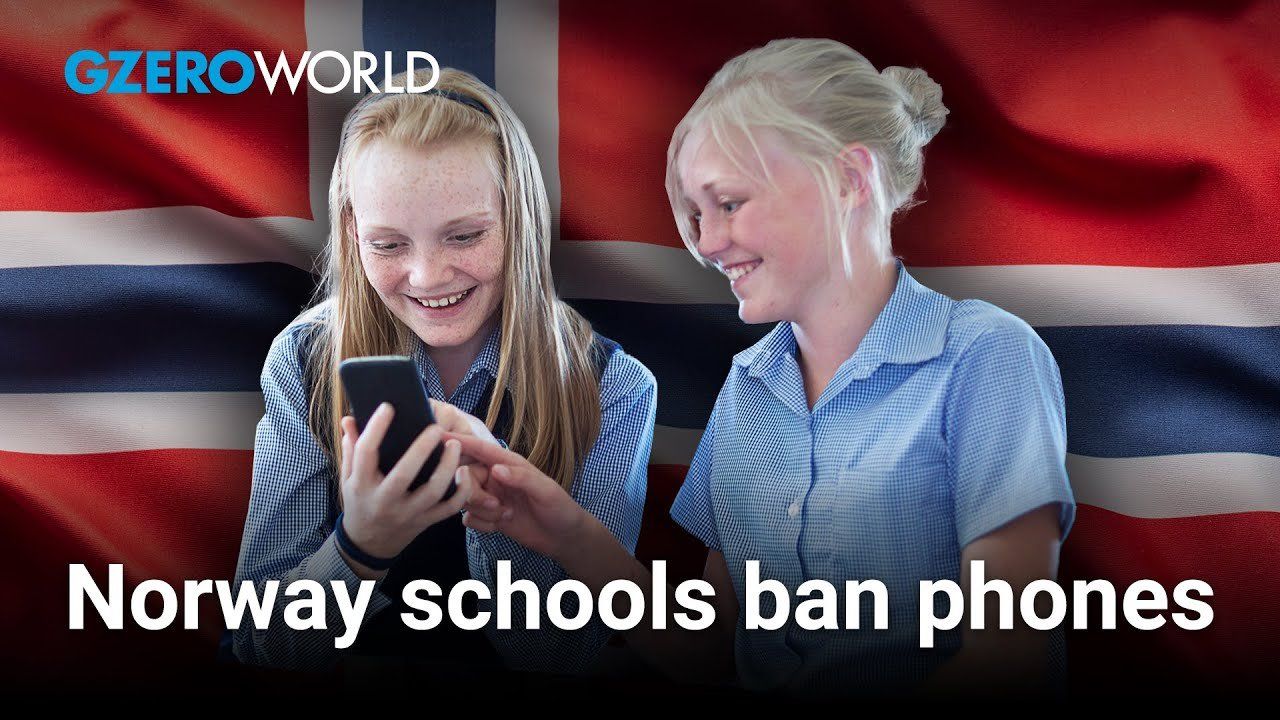Norway's school phone ban aims to reclaim "stolen focus", says PM Jonas Støre

Sometimes the best ideas are the ones that seem obvious in retrospect. In recent weeks, Norway's government has made a concerted push to ban smartphones and tablets from classrooms nationwide. Norwegian Prime Minister Jonas Støre explains his administration's radical move, which Education Minister Kari Nessa Nordtun has spearheaded, to Ian Bremmer in a wide-ranging conversation on the sidelines of the Munich Security Conference.
Their interview is featured in the latest episode of the show GZERO World on US public television stations nationwide (check local listings). Bremmer and Støre's discussion focuses primarily on Norway's energy transition and NATO, but towards the end of the conversation, they talk about schools and screentime and the remarkable benefits so far.
"We see students have started to play in the breaks [recess]. The girls say, 'We can finally take a shower after the gym. We are not afraid anymore to be photographed.' And there's a completely different level of social interaction."
This move, Støre explains, reflects a broader effort in Norway to prioritize community well-being and address the effects of the digital age on children's development, including declining reading abilities. And it's not just children who benefit from less screen time, he adds, but adults as well. And it's a decision, Støre explains, that other governments across Europe and the world could also do well to implement.